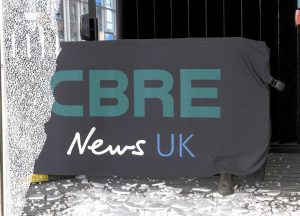In a UN-sponsored project, the Schurmann Family travels the US seas in a social mobilization campaign to end marine plastic pollution, promoting the cause in the press, on social media, and even on the big screen in Times Square. , New York. .
The campaign is called Voice of the Oceans and has the support of UNEP (United Nations Environment Programme).
Other Brazilians have also taken actions in defense of the seas promoted or supported by UN bodies. In June, surfer Maya Gabeira was named UNESCO Ocean and Youth Advocate at the organization’s congress in Lisbon.
Schurmann family at the UN
To denounce the plastic waste problem, the Schurmanns have been sailing at sea for almost a year on a ship equipped with resources to produce little waste and reuse whatever is possible. They use every opportunity to advance the cause.
While in New York, Heloísa and David Schurmann met with Special Envoy for Ocean Peter Thomson at UN Headquarters to discuss solutions to protect and use the seas sustainably.
The video of the Voz dos Oceanos project was shown on the big screen. Times Square, “Warn Big Apple residents and tourists to turn off the plastic faucet immediately! “
http://
View this post on Instagram
For the US expedition, the sailboat Kat adopted clean energy sources and a desalination process to produce drinking water.
Heloísa Schurmann describes the sailboat as “a self-contained and self-sustaining ship”.
Italian Erika Cembe Ternex, who is responsible for the kitchen and logistics of the trip, says it is possible and simple to live more sustainably “even in the corner of the house”.
There’s a vegetable garden on board, a composting system, and even a machine for breaking glass until it turns into easily discarded fine sand.
Ternex gives an example of what can be done at home, explaining that all waste, including medicines, is separated to have a suitable purpose. Compaction is another vital measure at sea as space is small and the sailboat can sail for up to 15 days on the open seas.
The energy used on the ship also comes from solar and wind panels and clean sources. All lamps installed on the sailboat are LED and lithium batteries.
Seawater is desalinated for consumption, while sewage is treated before being discharged into the ocean.
All this is promoted in interviews and on social networks as a way to encourage the public to adopt sustainable practices in their lives. The Schurmanns refer to Internet users as the “digital team”.
Also Read | Analysis | What does European Boiling Week teach about the role of the media in the climate change crisis?
Heloísa Schurmann: ‘it may be too late’
Eliminating plastic waste from the oceans by 2050 was one of the commitments signed in the final declaration of the United Nations Ocean Conference.
But for Brazilian seafarer Heloísa Schurmann, it may be “too late” to wait thirty years to see clear seas on which she sails, she reported at a meeting at the UN last week.
“I think it’s too late. I attended a few meetings just as we were enacting the laws, but I find the 2050 date to be a bit too far from reality. […]
They say by 2040 there will be more plastic than fish in the oceans, and I believe it. We’re finding an alarming amount of plastic.”
The Schurmann campaign is based on personal experience, which is a powerful way to persuade citizens and authorities.
“We are starting to notice the change in the seas. We’ve sailed and been to beautiful places, there are already more than 65 different countries and cultures, and one day when we were passing through Henderson Island in the Pacific Ocean, a very isolated island, we stopped at a place so isolated that people go there every day. three or four years old.
We looked to the side and saw some objects. Blue, green, red. What’s this? Guys, I’m talking about 1997, it was already plastic.”
The Voice of the Oceans project promotes recycling initiatives where it occurs, as well as disseminating the warning message about the plastic waste problem through the media.
read it too
source: Noticias
[author_name]
